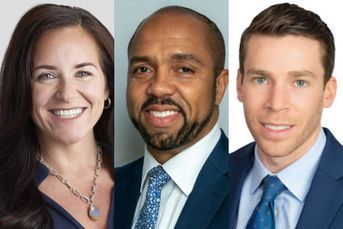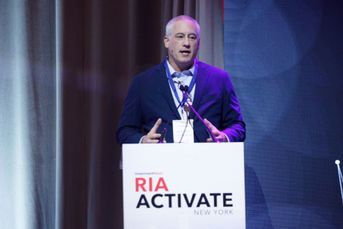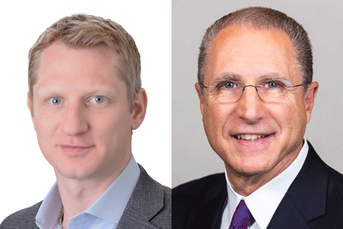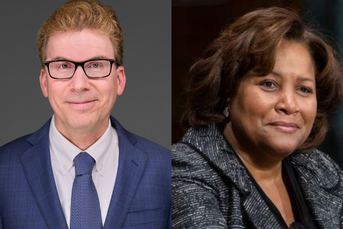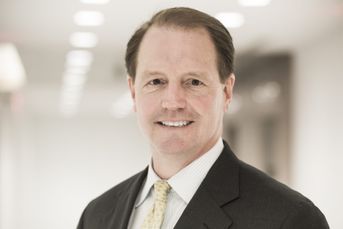Should you speak freely about politics and religion with your clients?

Although advisers have long avoided discussing certain subjects with clients, David Bahnsen of Bahnsen Group advocates being open with clients about such topics.
In retrospect, maybe Linus Van Pelt could have filled his entire trick-or-treat bag if he was a little more open with his clients about his political leanings and religious beliefs, let alone his views on the Great Pumpkin.
“Peanuts” creator Charles M. Schulz famously once said that “religion, politics and the Great Pumpkin” were the three things he refused to discuss with other people. Schulz, who would have celebrated his 100th birthday last week, is far from alone. Linus’ squash obsession notwithstanding, religion and politics have long been taboo topics in the business world, and especially for financial advisers who are loathe to unintentionally put off clients, even potential ones, with a personal opinion.
Money is already enough of a touchy topic, the consensus says. No need to tempt fate.
Not necessarily, says David Bahnsen, founder of the Bahnsen Group, a national wealth management firm with offices in Newport Beach, California; New York City; Nashville, Tennessee; Minneapolis; and Bend, Oregon. In Bahnsen’s view, an adviser’s transparency need not stop at his Finra profile and investment track record; it should also include being open about, and even inviting conversation about, religion and politics.
Bahnsen’s honesty has served him as a pretty good policy so far. Prior to launching the Bahnsen Group as an independent firm affiliated with Hightower Advisors, he spent eight years as a managing director at Morgan Stanley and six years as a vice president at UBS. The Bahnsen Group currently manages $4.1 billion in assets for clients, up from $575 million in April 2015, when it debuted as an independent firm.
InvestmentNews caught up with Bahnsen to learn how he exponentially grew his business after taking the independent route, as well as how he speaks freely with his clients about topics that would make even Snoopy blush.
InvestmentNews: Why did you go independent as an RIA?
David Bahnsen: I believed three things about the prospect of being independent versus staying within the wirehouse, all of which ended up being true. First, that we would be able to serve clients far, far better as an RIA than as employees of a large and bloated firm. Next, that the entrepreneurial mindset I had was far more suitable in an independent RIA model than what we were doing. And finally, that my ability to create content, to be my authentic self, to have no handcuffs when it came to what I wrote and said would leave me more fulfilled and help grow the business.
IN: Not many financial advisers speak publicly about politics, but you frequently share your views on politics with clients, in books you’ve written and on podcasts. Does being an independent RIA allow you to speak more freely about controversial topics?
DB: It certainly does. I now have no limitations about what I say or where I say it, other than my own self-imposed limitations to carry myself with grace, charity and wisdom. At Morgan Stanley, I was banned from doing television media, banned from using my own voice on social media and banned from using video and podcasts to express a point of view. Very little content could be created and what could be created was sanitized to the point of boredom. I have never written an article or expressed a point of view for the sake of being controversial, but I now can say and write what I want in the forum I want with no fear of repercussions. I have no intention of firing myself.
IN: What impact has this open dialogue about politics had on your business?
DB: It has been massive. Many people respect my point of view and even where they disagree, respect my willingness to engage in difficult issues with seriousness, sober-mindedness and clarity. I believe so many today are just looking for an angle to virtue signal with their political expressions or pay homage to some politically correct fad at a bumper-sticker level of depth. That is a turn-off to thoughtful people. We have found people either really appreciate our actual political perspective, or appreciate the way we express our political perspective, time and time again. It is refreshing.
IN: You have also discussed religion publicly and with clients. How have these conversations affected your business?
DB: Some people may not be comfortable doing this if they, themselves, do not take their own religious convictions all that seriously. That is fine, nominalism and tokenism are hardly new things. And of course, many just feel it is better to not risk offending anyone. But I have never understood how one person believing something different than someone else believes could be inherently offensive? I talk about transcendent truths and heartfelt beliefs as matters near and dear to me. Some agree with me. Some do not. But I do it with intellectual hospitality and an earnest desire for charitable dialogue.
Our society would benefit from a greater capacity for cordial political and religious dialogue, not from hiding around these topics. And the context for me sharing these things is always around why and how it matters to what I do day in and day out. I would think clients have a very vested interest in why and how an adviser does what they do, and believes what they believe.
IN: How do you handle potential disagreements? What if a client disagrees with your views?
DB: I have never remotely considered the idea that all clients would agree with all of my views. The only thing that would concern me is if a client felt I was presenting my views in a hostile manner, something I simply refuse to do. Disagreement is a normal part of a civilized, pluralistic society. Charitable discourse must be as well. I have had clients disagree with plenty of things, whether it be political, economic, cultural, theological or even investment application. But I have never had a client accuse me of not being intellectually serious or of not putting their best interests first. I believe clients who disagree with my point of view on some things respect me, nevertheless.
IN: Are there themes from these subjects — politics and religion— that guide how you advise clients on financial matters?
DB: Absolutely. For one thing, if there is another adviser who works harder, more hours, and with more diligence than I do, I have not met them. That is a specifically theological thing for me — I believe God made me to be a producer — to view my work as a higher calling. This drives the entire mentality I take to the work I do day in and day out.
But even when it comes to investment philosophy, I believe that part of our faith in the inner workings of a market economy come from an understanding of human action that is anthropological, that is, core to human nature. If I did not believe what I believe about the nature of man, I could never have the faith I have in an investment policy centered around enlightened self-interest, the profit motive and a societal capacity for the production of goods and services that meet the needs of mankind. Investing client dollars comes down to capturing risk premia from some existential truth. I guess it pays for an adviser to know what those existential truths might be.
‘IN the Nasdaq’ with Steve Sosnick, chief strategist at Interactive Brokers
Learn more about reprints and licensing for this article.

